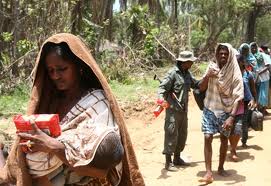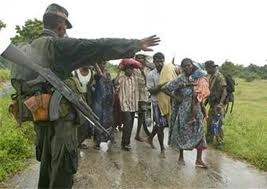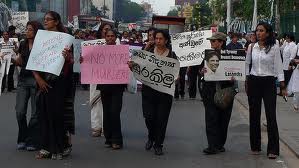The Falklands war was not oil-driven. In the first place, it was started by a military dictatoriship in Argentina to distract public attention. Second, the UK response was equally motivated to captivate the electorate and to twist public sympathy towards the Tory. It was risky? Probably yes, but it paid wonderfully well for Margareth Tatcher.
These were the driving forces in 1982 to catalyse an armed conflict. And yet everybody at the time knew that around the Falklands it was plenty of oil. How much? Well, these are always estimates, but it seems that the reserve could amount to 60 billions (almost a quarter of Saudi Arabia reserves. Not bad) but probably only 3.5 are commercially recoverable1. Since the 1994 Argentina and UK have been in negotiations to settle the matter after the conflict. But Buenos Aires walked away and from 1998 British companies have started to try their luck2.

Falkland Oil & Gas shares halved after an update on operations around the Falkland Islands. Photograph: Gary Clement/Reuters
Nowadays oil exploration is at an advanced stage in some platform and production in at least on well (Rockhoppen Sea Lion, almost 1,3 billion barrels, expects to start its first shipment by 20173).
The question is: did the Brits have a good idea about oil presence in the Falklands? The answer is a sound and round yes. The first time the British government knew about oil in the Falklands was in the remote 1969. At the time Richard Crossman, member of the cabinet, wrote in his diaries that the Foreign Office wanted to conceal the thing and prevent any further testing4. The Foreing Office feared of a possible aggravation of the territorial dispute with Argentina. Why? In public the British government was confident and bold about legitimacy of its claim. In private not so much. In 1936 John Troutbeck, head of Foreign Office American Department summarized difficulty of Britain’s position:
“Our seizure of the Falkland Islands in 1833 was so arbitrary a procedure as judged by the ideology of the present day. It is therefore not easy to explain our possession without showing ourselves up as international bandits.”5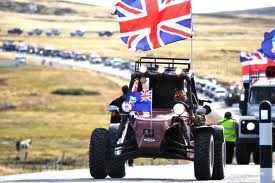
By 1975 almost 50 companies had applied to Britain for exploration rights. So when in 1982 Gen. Gualtieri invaded the islands, London proclaimed to intervene to safeguard the independence of the Falkland inhabitants and give them freedom of choice. Beside the fact that after the seizure in 1833 they evicted all the Argentinian citizens, so in the Falklands were living only British descendants, few years earlier, they had no problem in forcing the evacuation (against their will) of the inhabitants of the Diego Garcia, an island in Indian Ocean. Moreover all the inhabitants of the Falkland are working for a private company, which is basically the sole employer and land owner of the island: the Falklands are basically private property6.
The war is still remember as a tremendous success for the British army and it represented a turning point for the electoral success of a Tory party that was depressing an entire generation of workers. 30 years later those military operations proved to be also a good investment. And it didn’t happen accidentally.
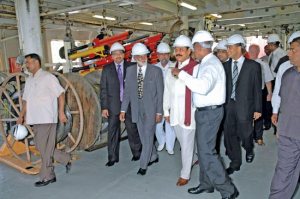
Cairn Lanka is commencing seismic acquisition in Mannar Basin with an investment of over US $ 100 million. President Mahinda Rajapaksa flagged off the first ever 3D Seismic activities in the Mannar Block from the Colombo Port recently.
Photo dailynews.lk
Now, 1 billion of barrels are lying in the Mannar Basin, with commercial production expected by 20147).
Exploration rights were sold before the end of the war and when the block was still in an area under the control of the LTTE. The company, Indian Cairn, listed in the UK, has been sold to another Indian corporation, the giant Vedanta, listed in the UK as well.On its side of the Strait India has oil operations (it was even speculated that it could stolen from the Sri Lankan reserve).
Are we still asking why India helped Sri Lanka in slaughtering 70 000 Tamils? Or why the UK remained silent and recently invited president Rajapaksa for the Diamond Jubilee?
Nothing new under the sun, nothing.
1http://www.independent.co.uk/extras/big-question/the-big-question-could-oil-exploration-of-the-falklands-lead-to-a-renewal-of-hostilities-1907412.html
2http://www.telegraph.co.uk/finance/newsbysector/energy/oilandgas/9178464/Falklands-oil-whos-drilling-where.html


